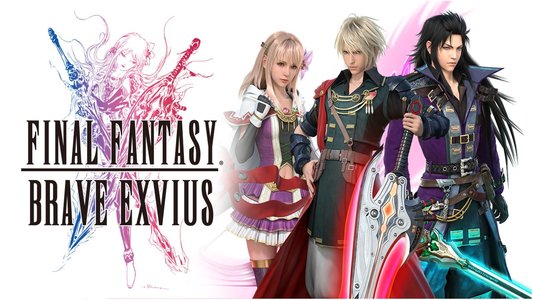Game industry figures gathered at the opening of the 2011 DICE Summit in Las Vegas on Wednesday to debate some hot topic issues in the games industry such as free-to-play business models, new control interfaces and “gamification” of society. But instead of heated knock-down drag-out arguments over the evolution of the gaming industry, speakers were fairly agreeable with one another and for the most part acknowledged that new ways of thinking can coexist with tradition. Matt Johnston, senior producer at Bejeweled house PopCap Games joined Nexon America director Min Kim to weigh in on their respective pay-to-play and free-to-play business models. And while the models may seem to be at odds, both Kim and Johnston agreed that free-to-play and more traditional single-pay schemes are both viable, depending on the game. Kim said people used to think that free-to-play was a “crazy Asian thing that no one would ever adopt” in the West. But his company, headquartered in South Korea, has been able to turn big profits and attract mass amounts of users worldwide who play Nexon games like Vindictus and MapleStory for free, and spend small amounts of money for additional content. He added that purchasing behavior in the West within free-to-play games isn’t really that much different from Korea. Johnston, whose company offers free demos of games and sells the full titles for a one-time fee, said, “Free makes sense in certain context, I think.” In PopCap’s case, however, the designers don’t create games with a microtransaction-based business model in mind. According to Johnston, game designers don’t really think about how the games are going to generate sales at all. “At the end of the day we need to get paid for something because we’re a business,” he acknowledged. “ … There are other people [at PopCap] who get paid to focus on the business, and they might get frustrated with our [designers’] lack of concern in that area.” He continued, “I just prefer and favor a design-in-a-vacuum thing where a group of designers can make their game and not consider [business models].” With PopCap’s try-before-you-buy model, once a customer buys a game, that’s it – the company won’t come knocking for any more money for that game. “…The friends that ask me for money over and over again, I’m not friends with them anymore,” Johnston said in a reference to microtransactions. “I don’t like having those transaction points in the game,” he said. “I think it breaks you out of the experience.” And while the one-time-buy model works fine for PopCap, it wouldn’t be beneficial for such an online and community-focused company like Nexon, said Kim. “If you’re going into the connected space ... I do believe free is the superior model,” he argued. “I think game developers just need to make good games,” Johnston added. The Future Of Interfaces On hand to talk about evolving gaming interfaces was Sony Computer Entertainment America R&D manager Dr. Richard Marks, who helped design the PlayStation Move controller. While some might expect new controllers like the Move and Microsoft’s gesture-based Xbox 360 Kinect to eventually usurp traditional game pads and control schemes, Marks said at least in Sony’s case, new control methods are only meant to supplement existing ones. “I’ve heard [motion gaming] called a fad. The thing is it doesn’t replace existing control schemes,” he said, rather it “augments” current control offerings. “I think [motion control has] just grown the space of what the market is right now.” Intel senior scientist Beverly Harrison added, “I don’t think [all future interfaces] will just be gesture-based,” she said. As the mouse and keyboard still exists, there will just be additional interfaces that will be used alongside established interfaces. Just as hobbyists are tinkering with different ways to use the Kinect, innovation in gesture-based applications will come from the fringe, she said. “There are lots of different things people are experimenting with out there. … I think that’s where new uses will pop up.” Gamification Jesse Schell, head of Schell Games and one of the reasons the term “gamification” has become more prevalent over the past year, joined industry veteran and Zynga chief designer Brian Reynolds to decode fun, pleasure and why gamification isn’t the all-encompassing solution that people have made it out to be. Schell, who said someone aside from him made up the term “gamification,” defined it as “taking something that’s not a game, and making it into a game.” Reynolds described it as taking game elements and applying them to something to “make people do something they don’t want to do.” Gamifcation could theoretically be applied to anything from marketing to personal hygiene, Schell said. Making someone do what they don’t feel like doing is a powerful ability. But Schell said that people have gamification all wrong – you can’t just shoehorn a few game-like elements into anything to “gamify” it effectively, he argued. He compared gamification to adding chocolate to different foods. Chocolate is a good thing and might be great on ice cream, but it’s probably horrible on cottage cheese. “It’s like no, no!” said Schell. “That doesn’t work. You have to find something that resonates, and brings out its essence.” Reynolds headed off any implication that Zynga’s games like FrontierVille or FarmVille are just “gamified” social frameworks that are engineered to make people do something they don’t want to do – part with their time and money. “The difference between Zynga’s philosophy and gamification is that gamification … tries to make you do something that you don’t want to do,” he said. But he said Zynga is an entertainment company that tries to provide content that at its core is fun and social, then charge for that experience. Playing Zynga games is something people want to do, he said. “There’s obviously some very positive reason that millions of people play social games,” added Reynolds. "I think what it is is that human beings are social animals. We’re wired to socialize.” Schell said, “Social games facilitate a type of gameplay that was impossible five years ago” in that they are games that you can play “every damn day” at work and interact with friends. “Games are becoming more and more woven into people’s lives,” he said.
DICE 2011: How Tradition Is Coexisting With New Gaming Trends
Feb. 9, 2011

Tags:
2011
Subscribe to our newsletter
About JikGuard.com
JikGuard.com, a high-tech security service provider focusing on game protection and anti-cheat, is committed to helping game companies solve the problem of cheats and hacks, and providing deeply integrated encryption protection solutions for games.
Top

New Phishing Campaign Abuses ConnectWise ScreenConnect to Take Over Devices
Aug. 27, 2025

New Data Theft Campaign Targets Salesforce via Salesloft App
Aug. 27, 2025

ENISA to Coordinate €36m EU-Wide Incident Response Scheme
Aug. 27, 2025

Citrix Patches Three NetScaler Zero Days as One Sees Active Exploitation
Aug. 27, 2025

ShadowSilk Campaign Targets Central Asian Governments
Aug. 27, 2025
Recent

New Phishing Campaign Abuses ConnectWise ScreenConnect to Take Over Devices
Aug. 27, 2025

New Data Theft Campaign Targets Salesforce via Salesloft App
Aug. 27, 2025

ENISA to Coordinate €36m EU-Wide Incident Response Scheme
Aug. 27, 2025

Citrix Patches Three NetScaler Zero Days as One Sees Active Exploitation
Aug. 27, 2025

ShadowSilk Campaign Targets Central Asian Governments
Aug. 27, 2025

Nevada “Network Security Incident” Shuts Down State Offices and Services
Aug. 27, 2025

Researchers Discover First Reported AI-Powered Ransomware
Aug. 27, 2025

CISA Strengthens Software Procurement Security With New Tool
Aug. 27, 2025

PlayStation CEO says firm is implementing measures to minimise impact of cancellations
Aug. 27, 2025

Ubisoft CEO Yves Guillemot summoned to appear before French court
Aug. 27, 2025
Blog

Magisk Cheat Detection Solution
Feb. 10, 2026

x64dbg Dynamic Debugging Detection Solution
Feb. 3, 2026

How to Detect Game Direct-Install Hacks
Jan. 26, 2026

How to Detect SRPatch Signature Verification Bypass Tools
Jan. 19, 2026

How games prevent communication data tampering
Jan. 13, 2026

Unity Mini-Game Code Encryption Feature Now Available
Jan. 9, 2026

Magisk Cheat Tool Detection Solution
Dec. 30, 2025

Game Risk Environment Detection Solution
Dec. 25, 2025

Japan Allows Side-Loading on iPhones, Game security faces new challenges
Dec. 23, 2025

iOS Developer Signature Bypass Solution
Dec. 18, 2025
Random

Researchers Discover First Reported AI-Powered Ransomware
Aug. 27, 2025

RETURN TO SILENT HILL: Check Out The First Teaser Trailer For Christophe Gans' Horror Sequel
Aug. 27, 2025

ShadowSilk Campaign Targets Central Asian Governments
Aug. 27, 2025

Crystal Dynamics lays off "a number of talented colleagues"
Aug. 27, 2025

US: Maryland Confirms Cyber Incident Affecting State Transport Systems
Aug. 26, 2025

Ubisoft CEO summoned to court in harassment case
Aug. 26, 2025

CIISec: Most Security Professionals Want Stricter Regulations
Aug. 26, 2025

Ubisoft CEO Yves Guillemot summoned to appear before French court
Aug. 27, 2025

Square Enix shutters two ten-year-old mobile games
Aug. 27, 2025

Phishing Campaign Uses UpCrypter to Deploy Remote Access Tools
Aug. 26, 2025
Most Views

How Games Detect GameGuardian
March 17, 2025

Explanation of Game Anti-Cheat Solutions
March 17, 2025

Cheat Engine Modifier Detection Solutions
March 18, 2025

Explanation of Unity Engine Encryption Solutions
March 17, 2025

How to Anti Hack in Client-Side Games
May 21, 2025

Cocos Engine Encryption Solution
April 8, 2025

How Games Anti-Debugging
April 15, 2025

Cloud Phone Detection Solution for Gaming
May 21, 2025

How Games Detect Frida
March 25, 2025

How Games Detect PlayCover
March 26, 2025


